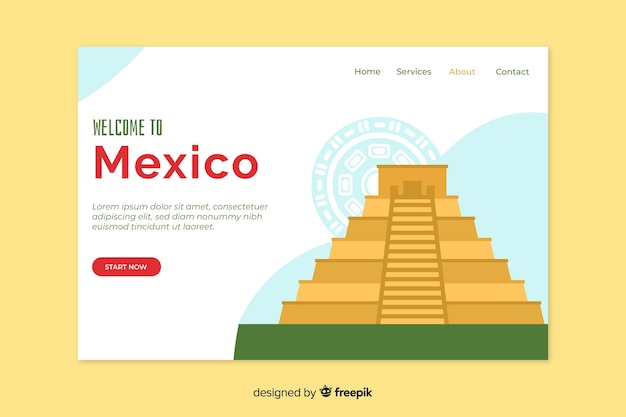Interesting Facts about Chichen Itza

Chichen Itza is a UNESCO World Heritage Site.
El Castillo, also known as the Temple of Kukulkan, is the most iconic structure in Chichen Itza.
Chichen Itza was once a major hub of Mayan civilization.
The site is located in the Yucatan Peninsula in Mexico.
Chichen Itza was one of the largest cities in ancient Mesoamerica.
The Great Ball Court in Chichen Itza is the largest of its kind in the world.
The Mayans used Chichen Itza as a ceremonial center and a place for political discussions.
The Cenote Sagrado, or Sacred Cenote, is an underground natural pool used for human sacrifices.
Chichen Itza showcases a blend of Mayan and Toltec architectural styles.
The Temple of the Warriors is adorned with hundreds of columns depicting warriors.
The Observatory, also known as El Caracol, was used by Mayan priests for astronomical observations.
Chichen Itza was likely abandoned in the 15th century and its importance declined.
The site was rediscovered in the 19th century by explorer John Lloyd Stephens.
Chichen Itza’s Pyramid of Kukulkan was built with precision, aligning with astronomical events.
The pyramid has 365 steps, representing the Mayan solar calendar.
Chichen Itza hosts a light and sound show depicting the history and legends of the Mayan civilization.
The name Chichen Itza means at the mouth of the well of Itza.
Its location near multiple cenotes made it a strategic site for water resources.
Interesting Facts about Chichen Itza part 2
Chichen Itza has been featured in several movies and documentaries, including Apocalypto.
The Mayans were skilled mathematicians, as seen in the intricate numerical patterns in Chichen Itza’s structures.
The Chac Mool statue found in Chichen Itza was used for offerings and sacrifices.
Chichen Itza’s architectural elements were designed to create specific acoustic effects, like echoes and whispers.
The site is believed to have been an important trading center in ancient times.
The Temple of the Jaguars displays intricate carvings of, you guessed it, jaguars.
The Mayans used an advanced astronomical calendar system, and Chichen Itza played a role in its development.
Chichen Itza is divided into several zones, each with its own unique structures and purposes.
The vast size and scale of Chichen Itza demonstrate the engineering capabilities of the ancient Mayans.
The site receives over 2 million visitors annually, making it one of the most popular tourist destinations in Mexico.
Chichen Itza’s architectural design incorporates symbolism and religious beliefs of the Mayans.
The Mayan civilization thrived for over 2,000 years, with Chichen Itza representing its peak.
Chichen Itza was inscribed as one of the New Seven Wonders of the World in 2007.
Recognizing its cultural significance, Chichen Itza has also been depicted on Mexican currency.
The Chichen Itza ruins were heavily influenced by both Mayan and Central Mexican cultures.
The Dzibilchaltun ruins, located near Chichen Itza, are also worth a visit to learn more about Mayan history.
Chichen Itza attracts archaeologists and researchers from around the world due to its rich historical significance.
The Tzompantli, or Wall of Skulls, found in Chichen Itza, was used for display purposes related to sacrifice rituals.
The Mayan civilization had a complex social and political structure, and Chichen Itza reflects this hierarchical organization.
The Temple of the Three Lintels in Chichen Itza has carvings depicting the descent of Kukulkan during the equinoxes.
The city’s layout and design were influenced by astronomical alignments and the movement of celestial bodies.
Chichen Itza’s popularity as a tourist destination has prompted the Mexican government to take measures to preserve and protect it.
The Venus platform in Chichen Itza was used to observe the planet Venus, considered important in Mayan astrology.
Chichen Itza is a testament to the architectural, mathematical, and astronomical knowledge of the ancient Mayans.
The Temple of the Warriors is adorned with sculptures of soldiers and gods, symbolizing military power and religious beliefs.
Chichen Itza is not just a tourist attraction, but also a site of cultural and historical significance for the Mayan people.
Exploring Chichen Itza offers a glimpse into the ingenuity and creativity of one of the world’s most fascinating civilizations.

